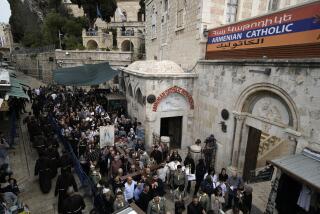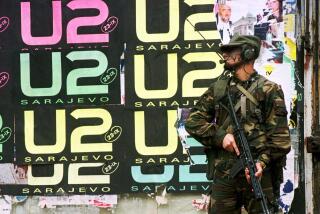Timeline: A short history of Sarajevo and region

SARAJEVO TIMELINE
15th century: Sarajevo is founded by the Ottoman Empire. The city grows around a Turkish-style marketplace, adding mosques and roadside inns.
16th century: The city’s first Orthodox church appears in historical records. Sephardic Jews arrive, fleeing persecution in Spain and Portugal.
1878: Sarajevo and the rest of Bosnia-Herzegovina are annexed to the Austro-Hungarian Empire.
1914: Assassination of Austro-Hungarian Empire’s Archduke Franz Ferdinand sparks World War I.
1918: Austro-Hungarian Empire collapses. Bosnia-Herzegovina becomes a part of the Kingdom of Serbs, Croats and Slovenes, later known as the Kingdom of Yugoslavia.
1939-1945: World War II. Nazis occupy Sarajevo, then place it under control of pro-Hitler Croatian fascists, who send thousands of Serbs, Jews and Roma (then commonly called Gypsies) to death camps. The city’s Jewish population, once near 10,000, falls to less than 1,000.
1945: Liberated by partisans led by Marshal Josip Broz Tito, Sarajevo and Bosnia-Herzegovina become part of the Socialist Federal Republic of Yugoslavia.
1984: Sarajevo hosts Winter Olympics.
1992: As Yugoslavia crumbles, Bosnian Muslims and Bosnian Croats (mostly Catholic) vote for Bosnia-Herzegovina independence. But Bosnian Serbs, mostly Orthodox and backed by Serbia, want Sarajevo and other Bosnian territories to be part of a greater Serbia.
1992: Bosnian Serbs besiege Sarajevo, ignoring U.N. protests.
1995: Dayton Accords end the siege and war by creating a many-layered government that includes a federation of Bosnian Muslims and Bosnian Croats that shares power with a republic of Bosnian Serbs. Most of Sarajevo’s territory and more than 90% of its residents fall within the federation of Bosnian Muslims and Croats.
Sources:
Encyclopedia Britannica, www.britannica.com.
Sarajevo Navigator, sarajevo.travel/en
More to Read
Sign up for The Wild
We’ll help you find the best places to hike, bike and run, as well as the perfect silent spots for meditation and yoga.
You may occasionally receive promotional content from the Los Angeles Times.






